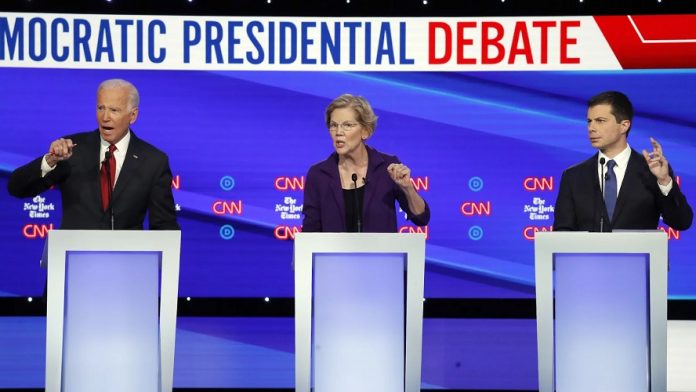John Fea teaches American history at Messiah College in Mechanicsburg, Pennsylvania. He is the author of “Believe Me: The Evangelical Road to Donald Trump.” The views expressed in this commentary do not necessarily reflect those of BCNN1.
Do the current Democratic candidates for president have any chance of winning evangelicals in November 2020?
Probably not.
Of the candidates left in the Democratic primary race, Pete Buttigieg has made the most of his Christian faith. Buttigieg regularly quotes the Bible on the campaign trail and is always ready to remind us that the Christian right does not have a monopoly on the language of faith.
But for many evangelicals, Buttigieg’s Bible-infused sermonettes seem indistinguishable from the usual Democratic talking points. One wonders if there is anything about his understanding of Christianity that would put him at odds with party orthodoxy.
Over the last couple of years, I have talked with a lot of Trump-voting evangelicals. Some go to my church. Some are in my family. We have exchanged emails and social media messages. I met many of them during the tour for my book “Believe Me: The Evangelical Road to Donald Trump.”
Based on this anecdotal evidence, I know that a lot of evangelicals will vote for Trump again. I’ve even met a few evangelicals who voted for a third-party candidate in 2016 but plan to vote for Trump in 2020 because he appoints conservative Supreme Court justices, fights for religious liberty (as defined by conservative evangelicals) and defends the interests of Israel.
But I have also met people who voted for Trump in 2016 and are looking for a justification — any justification — to vote for a Democrat in 2020.
These evangelicals might vote for a Democratic candidate who speaks in genuine and sincere ways about reducing the number of abortions in America. Ideally, this candidate would support the Hyde Amendment, the legislative provision that prevents the government from using federal funds to pay for most abortions.
Evangelicals might also consider voting for a Democratic candidate who recognizes legitimate threats to religious liberty. Such a candidate might be willing to endorse the Fairness for All Act, a bill that both outlaws discrimination against the LGBTQ community and protects the convictions of faith-based institutions.
Perhaps this candidate might embrace something akin to what Washington University law professor John Inazu calls “confident pluralism.” Inazu calls both the left and the right to think more deeply about how Americans can live together amid their deepest differences and, in the process, forge a healthy republic defined by “tolerance, humility, and patience.”
If a candidate will speak proactively on these issues, he or she just might steal a small number of evangelical votes away from Trump. In another close election, such votes may be all that is needed to defeat the president in 2020.
Unfortunately, no such candidate exists in the Democratic field.
Source: Religion News Service
All Content & Images are provided by the acknowledged source
